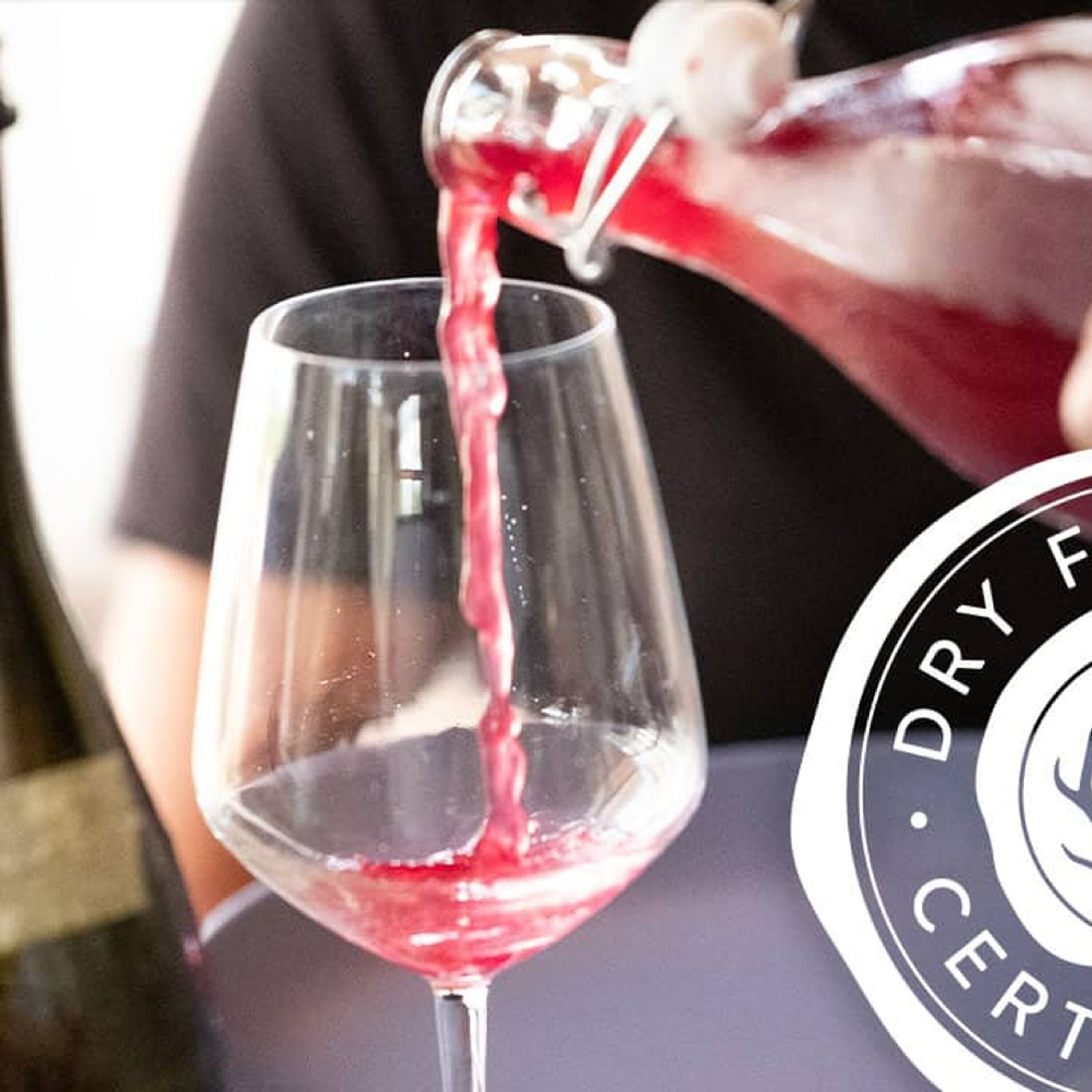Dry Farm Wines Pt. 2


Welcome to The Best 5 Minute Wine Podcast. I’m your host Forrest Kelly from the seed to the glass. Wine has a past. Our aim at The Best 5 Minute Wine Podcast is to look for adventure at wineries around the globe. After all grape minds think alike. Let’s start the adventure. We go on a different journey. We don’t drop into a specific winery.
We are speaking with Todd White, founder, and CEO of Dry Farm Wines.
There are 76 additives approved by the FDA for use in winemaking. Four of them are quite toxic. The most toxic is Dimethyl dicarbonate marketed under the brand name Velcorin. And it’s used to treat Brettanomyces, which is the most common bacterial fault and why it’s highly toxic. If you go to Dimethyl dicarbonate on Wikipedia, you’ll see how toxic it is. Okay, I did look it up on Wikipedia Dimethyl dicarbonate. It is classified as toxic. The first warning is harmful if swallowed. It’s also toxic by inhalation. It causes burns. Well, that’s not really something that you want to be ingesting, especially if you’re going to be drinking it over a lifetime. Now, the public doesn’t know about these additives some and in fairness some are natural. Many are not. The wine industry spends millions of dollars a year and lobby money to keep content labeling and nutritional information off of wine labels. So you don’t have any idea how much sugar is in the wine you’re drinking. To people who care about their health sugar is a very important thing they want to know about. So our job is education. The wine sells itself. Now, that brings up the question. Dryfarmwines.com because of these strict guidelines. Why don’t you carry any domestic wines? The reason being is that there are not really any U.S. wines that meet our criteria. And so you talk about U.S. wines. There are a number of difficult criteria for them to meet. And they’re in the order of dry farming. So almost all domestic vineyards are irrigated. Number two, alcohol. We don’t accept any alcohol over twelve and a half percent. And that’s lab tested by us. Alcohol stated on a wine bottle is not required by law to be accurate. So we did lab testing for alcohol. So there are virtually no U.S. wines made that are twelve and a half percent or lower in alcohol. Virtually none. And then the third most prevalent reason that a U.S. wine wouldn’t qualify for our program is cost. So all of our wines sell for exactly the same amount. They’re $22.00 a bottle. There are no U.S. wines that meet our criteria of organic or biodynamic dry farming and alcohol that cost anywhere close to $22.00. The primary driver on a domestic wine price is going to be the cost of the land. All of U. S. vineyard costs are just so much higher than the capital cost of land in Europe and places like Beaujolais, where anywhere across Europe where most of these small family farms that produce natural wines that we buy wine from, most of them are multigenerational landowners, that they don’t have any capital costs.
We’re constantly being told to hydrate, drink more water. That philosophy does not transfer to grapevines. There are a lot of reasons not to irrigate a grapevine. And in most of Europe, it’s against the law to irrigate grapevines. Europeans have been making wine for over 3000 years. Now what we know, the moment you irrigate a great vine, you fundamentally change the physiology of how the fruit ripens. It also makes for a lazy vine and the fruit is actually less healthy. So the polyphenols, flavonoids, native flavonoids, and other healthy compounds that are found primarily in red wines are actually reduced with irrigation. They’re also reduced with non-organic farming. But the real issue on irrigation is that, yes, stress does create a higher quality fruit. Even people who irrigate know that because that’s the reason that you space vines close together is also the reason that you see wine companies, even the ones that are irrigated, will tout hillside true hillside selection as superior because any fruit that grows on a hillside is under greater stress than that fruit that grows on flat ground. Whether irrigated or not. So, yes, I think everybody universally agrees that stress is helpful in creating a higher quality and character of the fruit. Here’s the thing with irrigation. You see, it’s cheaper and easier to farm using irrigation. It also creates a higher yield and fruit that weighs more. It might not surprise you when you fill a great area with water. It weighs more. Fruit is sold by the ton. So irrigation is about money. Irrigation didn’t come to California for wine farming until the early 1970s. So prior to that, everything California was also transformed for dry farming. Now, less than one percent of California vineyards are dry-farmed because dry farming is more difficult, it requires more work and it’s more expensive. In our next episode, we’ll find out what happens when you drink a wine. With Low alcohol, sugar-free, toxic, free.
Thank you for listening. I’m Forrest Kelly. This episode of the Best 5 Minute Wine podcast was produced by IHSYM. If you like the show tell your friends and pets and subscribe. Until next time, pour the wine and ponder your next adventure.
This podcast uses the following third-party services for analysis:
Chartable - https://chartable.com/privacy
Podcorn - https://podcorn.com/privacy
Support The Best 5 Minute Wine Podcast: https://www.patreon.com/thebestwinepodcast
See omnystudio.com/listener for privacy information.
